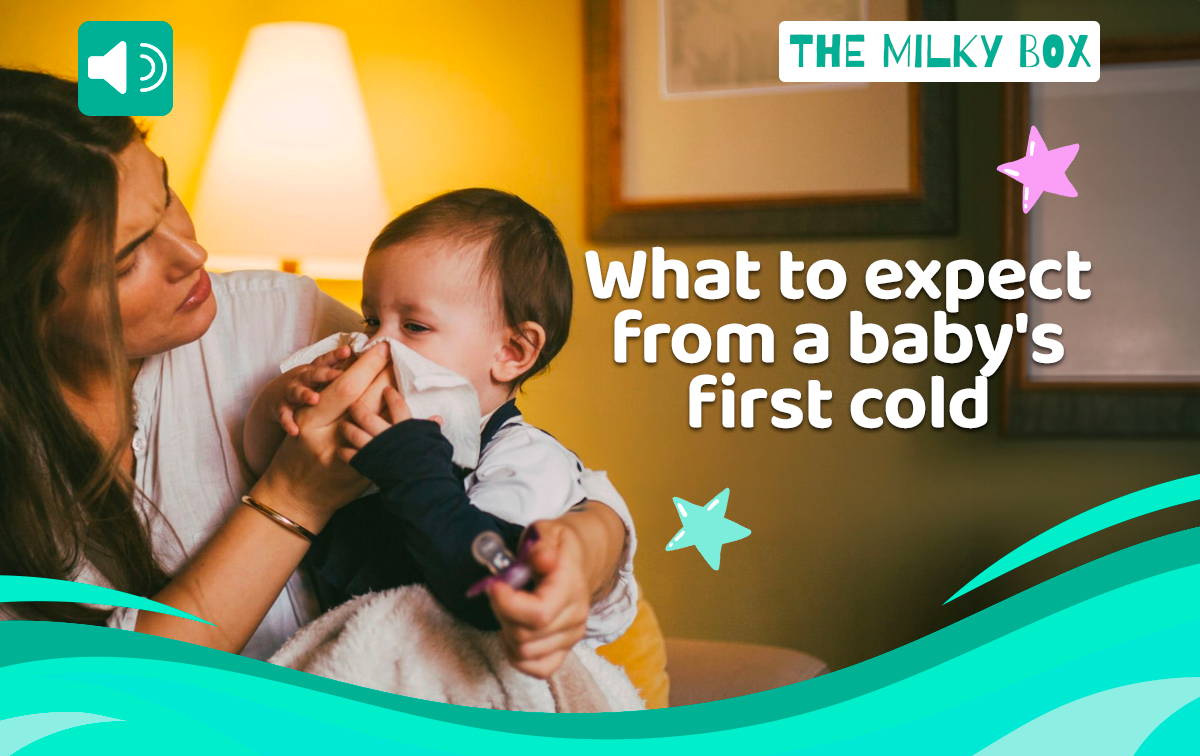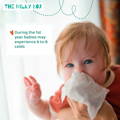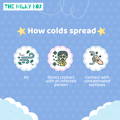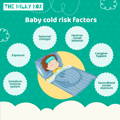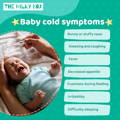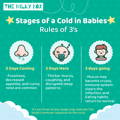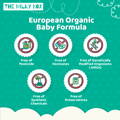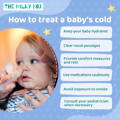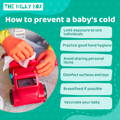Here are the conditions and symptoms that indicate when to call the doctor for a baby's cold symptoms.
For babies under 3 months: Call the doctor at the first sign of a cold, especially if there’s a fever, to rule out serious illness. Do not administer fever medicine before being seen.
For babies 3 months or older: Call the doctor if your baby:
● Has signs of dehydration (isn’t wetting as many diapers as usual)
● Has a fever greater than 101 °F (38.4 °C) persisting beyond 3 days
● Exhibits ear pain or unusual irritability
● Develops red or discharging eyes
● Experiences breathing difficulties and wheezing
● Has persistent cough or nasal discharge lasting longer than specified durations
● Is a high-risk baby (chronic lung disease)
● Has a weakened immune system (specific medical conditions) or if symptoms worsen
despite home care.
These signs might indicate a more severe condition than a common cold.
Immediately seek medical attention if your baby:
● Develops high fever accompanied by shaking or chills
● Refuses to nurse or drink fluids for an extended period
● Displays unusually low energy or excessive sleepiness
● Shows difficulty breathing or appears bluish around the lips
● Experiences severe coughing leading to vomiting or changes in skin color
● Coughs up mucus tinged with blood

